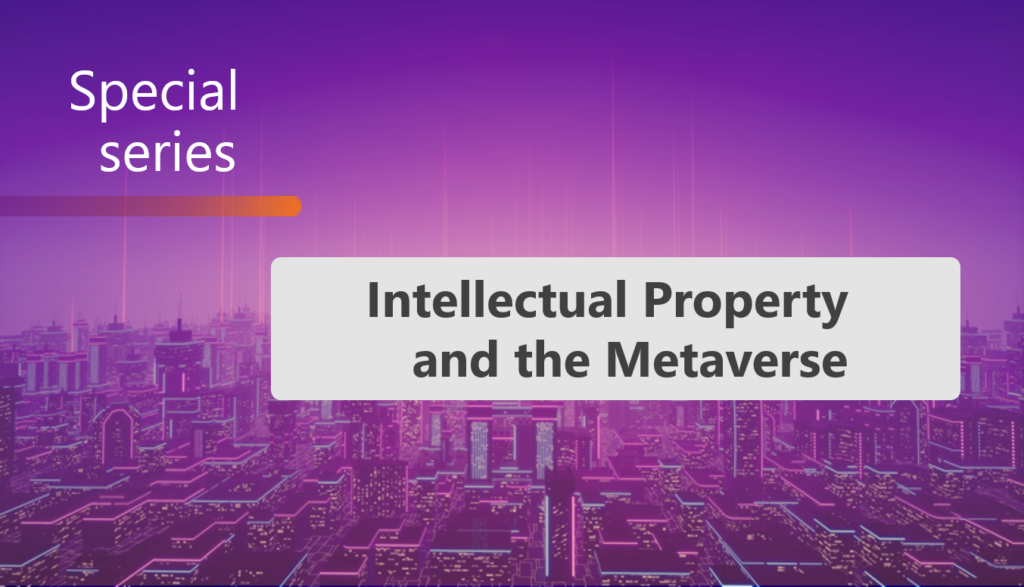

Metaverse and music: opportunities and challenges
With the growth of disruptive technologies and the increase of performances in the metaverse, great opportunities arise for the music industry — but so do legal challenges
The 2022 MTV Video Music Awards (VMA), one of music’s biggest award ceremonies recognizing the best music videos of the year, took place in August. Created in 1984, the event introduced a new segment this year: the “Best Metaverse Performance” category. This category emerges in the context of growing curiosity and interest in the new forms of music presentations on different metaverse platforms.
In recent years, several artists have begun to invest in concerts and performances on metaverses. The growth in these performances is noteworthy for their reach, especially after the Covid-19 pandemic, which accelerated the digitalization of the entertainment industry. Music group BLACKPINK, for example, reached an audience of more than 10 million viewers who followed the release of the song “Ready for Love” – winner of the new VMA category – on the Pubg Mobile platform.
In 2020, 28 million virtual avatars watched rapper Travis Scott on Fortnite. Soon after the concert, the rapper gained 1.8 million new followers on his social networks, and many licensed products with the singer’s image were developed.
This gamification of music experiences can help democratize performances and expand the reach of emerging and well-established artists by reducing the amount charged for accessing their content or by eliminating the physical barriers that usually prevent listeners from attending concerts.
The music industry also has many possibilities based on non-fungible tokens – NFTs. Concerts, performances, album covers, and even exclusive interviews can be immortalized by encrypted digital tokens, which function as collectible items that bring fans closer to their idols. Artists can also launch their own coins and tokens, which can help finance concerts and bridge communication with their audience.
New legal challenges
Besides offering various creative and economic opportunities, the metaverse will cause changes to the music industry’s business model, forcing market players to rediscover their roles in virtual negotiations. If the emergence of streaming content in the 2000s changed the industry and the concept of public performance – defined in article 68, paragraph 2, of Law No. 9,610/1998, the Brazilian Copyright Law (LDA), as “the use of musical or literary-musical compositions, through the participation of artists, whether paid or not, or the use of phonograms and audiovisual works, in places of collective attendance, by any process, including broadcasting or any other transmission method, and cinematic exhibition” – metaverse platforms will drive similar changes, as the streaming of music in decentralized environments creates significant challenges for collecting copyright and enforcing other rights that artists may have.
The virtualization of situations common in the physical world unfolds not only in the playing of music in virtual concerts but also in the streaming, creation, and sharing of musical content between users. Accordingly, many artists now have another source of income, as the virtual environment does not exempt users and respective platforms from complying with copyright liabilities and the duty to remunerate authors or holders of copyrights and related rights.
Known but adapted solutions
Considering the contemporaneity of this matter and the absence of legal provisions that can sufficiently regulate copyright matters in the metaverse, addressing potential issues under specific agreements is the safest and most recommended measure to be adopted in the current scenario.
In this context, issues such as determining the competent jurisdiction to settle cross-border disputes involving copyright, royalties for playing music on platforms, and the limitations on the platform’s liabilities concerning content uploaded by users are expected to be addressed through terms of service or contracts of licensing and assignment of rights with provisions adapted to the virtual and decentralized context.
Despite these uncertainties, innovation in Web 3.0 technologies and services will also be accompanied by innovation in licensing models and the collection of music royalties. Meanwhile, contractual protection — as players in the music industry do today — is the best way to avoid conflicts. Finally, if these contracts are executed using blockchain technology, more security and agility in transactions can be guaranteed, as smart contracts enable copyrights and related rights to be quickly collected and even distributed to their respective holders.
For more information on copyrights in the metaverse, please access our special series Intellectual Property and the Metaverse.



